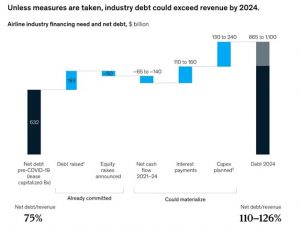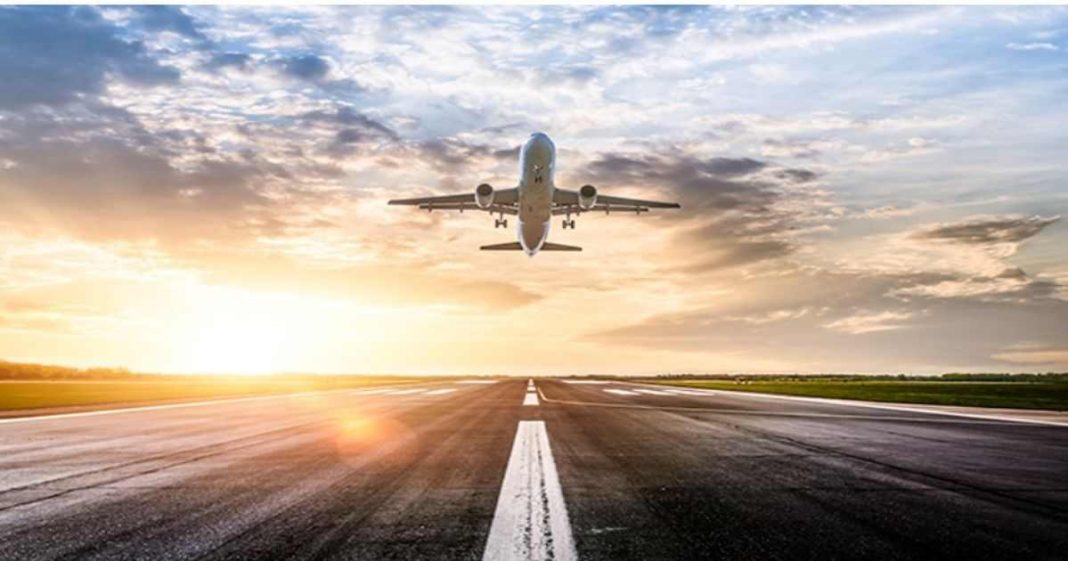The covid-19 pandemic devastated the airline industry in 2020. Yet the hopes are alive that after two years of doom and gloom the most battered business of modern times sees signs of recovery in the offing. Few industries had been hard hit than the airlines since March 2019.
From plane manufacturers to operators, the airlines’ employees, and the leisure travel bureaus were all in deep waters. But hopes of a renaissance are rekindled and we can see the light at the end of a very long tunnel. The good news is that air travel is finally turning the corner.
Read more: Airline industry will face revenue shortage of $314 billion in 2020: estimates IATA
World’s responsible nations like China, New Zealand, and Australia perceived the danger of the virus earlier and took drastic steps as earlier as by February 2019. They started by shutting their borders close to foreigners. They locked down all the cities and declared a national emergency to protect the citizens.
Their actions met with sporadic rebuttals, but despite some digressions, the authorities underpinned by strong economies and institutional collaboration finally achieved incredible results.
Unbelievably the Chinese aviation industry was put back into business within months of the deadly virus contraction. Talking about mainland China, the virus had been well contained and the domestic travel was at its normal soon.
Read more: China holds triumphant ceremony to celebrate beating the coronavirus
In a recent IATA survey, the summer of 2021 will see a global air travel recovery by almost 50 percent of the pre-Covid level. In 2022 it will rise to 80 percent of the pre-Covid level, and in 2023/2024 it will regain the full level of 2019 level or may exceed.
.@emirates has announced that it will be boosting its #COVID19 digital verification capabilities for passengers traveling this summer. ✈️
Proud that #IATATravelPass is supporting this initiative. 👉https://t.co/Kl0UT28ZiC @DXBMediaOffice #Dubai pic.twitter.com/RcPtWeylVh
— IATA (@IATA) June 22, 2021
Those calculations may be wishful thinking of economists as of now. But given the historical facts, based on the past pandemics and the grand recessions, hopes are alive that a period of the boom is not too far. The bustle in economic activities will be the result of a backlog of almost three years that the corporate world had been through, and the trend may continue for few years before reverting to the default state.
Pandemic driven innovations
A grandiose announcement of a re-invoked Atlantic Charter by U.S President Biden and British PM Boris Johnson injected fresh oxygen into the distorted Air travel industry. As Europe opens its borders to US travelers the rest of the world, too, is expected to follow suit. They are doing it with extensive safety measures of scrutinizing and ensuring that the contractions will be kept to an acceptable level.
Reportedly, on average, the flights within the U.S are almost 80% full due to the summer travel surge. United Airlines is adding 450 new flights to its pre-pandemic schedule only in June. Elsewhere in the world, it may take a while for the governments to take heed and rise to the challenges of a tough recovery stage.
Read more: United Airlines broke two golden rules of marketing
In this era of Artificial Intelligence (A.I), R&D has always been in the fast lane, and the unprecedented lull in business activities across the globe has engendered many unprecedented scientific innovations too.
The exponential growth of Virtual work/ WFH concept, a boom in the drone technological use in cargo delivery, the head start of technologies like TEAM, ZOOM, and WEBEX will herald into “off-loading” of air travel. The concepts worked extremely well during the pandemic and will lead the way in ushering in a travel-free business idea.
Enhanced awareness and a global will to work on environmental safety, by the abatement of carbon in the atmosphere are needed. An advanced air mobility concept (VTOL) to become the future of Air Mobility, Cargo delivery; the delivery of e-commerce packages, medications, vaccines, food packages to the needy, over the short and the long range, is taking shape as a novel way to the future of transportation.
Read more: Qatar Airways bags world’s best airline award
Post recovery hiccups
Covid-19 leaves devastations for human lives, communities, economies, and the aviation air travel industry. Worldwide mortality by virus estimated to a figure of 3.7 million and still counting. Airlines of the world suffered a financial loss of almost $3.8 billion only in 2020.
The process of counting the cost is always agonizing for the survivors. Air travel revival entails a gamut of issues that will need an eccentric approach by industry leaders and the national authorities.
Mounting debts will lead to a significant hike in ticket prices, requiring governments to pump more money as a stimulus to bolster the airlines’ survival status. The aviation industry and the governments will have to work as constructive collaborators because the industry was battered.
Read more: PIA incurs loss of Rs280 million after EU suspended flight operations
As a creditor, shareholder, or even a board member, the industry will have to collaborate closely with the authorities to stay afloat.

A caveat worth mentioning is managing the availability of the seats versus the passengers. Almost two-thirds of the big airlines’ fleet had been mothballed, most of them in far-flung locations. Recovering and restoring them for impending flight loads when the operation ramps up and bringing back the staff from furloughs will be an uphill task for big carriers.
Cost of ignoring the history
History repeats itself and so do the pandemics. Spanish flue in 1918 lasted for two years. It had three phases that took their toll, each one at a higher rate than the preceding one. The global mortality was counted to be around 40 million worldwide.
Nearly 25 million people died in the Black Death pandemic (Bubonic fever) from 1347 to 1351. Sadly, Southeast Asia’s self-serving leaders ignored the ramifications of the virus and failed to manage the spread of the disease at a later stage.
Read more: Here’s how we need to arm against future pandemics
The economy gurus forecast a new industrial boom following this deadly pandemic. The global reset is inevitable at preset intervals determined by the nature. The pandemics bring havoc for humanity worldwide, but the shining side of the coin has surprises too. This world needed a reset and it almost passed. But the future holds prosperous and brighter days for the air travel industry.
Traveling is the very part of human nature to rejuvenate and the whole world is desperately waiting for it to revive to the pre-pandemic level. I hope air travel will soon come back roaring, and once again the history of the future will mention it as “Roaring twenties” —– the 2022 and so on.
The author is an Aeronautical Engineer and a current affairs analyst. He can be reached at: rafiqjan222@yahoo.co.uk.The views expressed in the article are the author’s own and do not necessarily reflect the editorial policy of Global Village Space.














